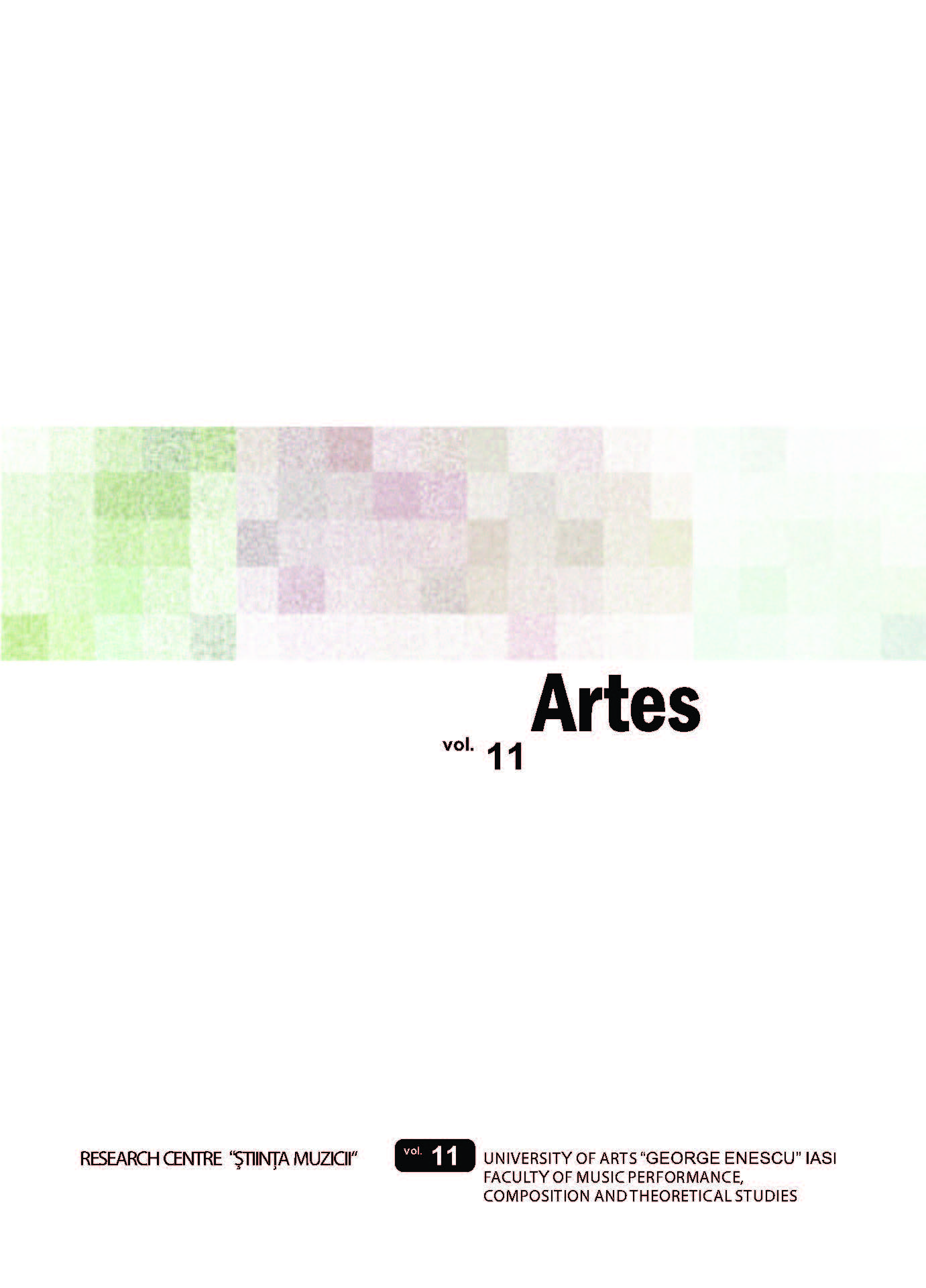THE ADAPTATION OF BYZANTINE AND POST-BYZANTINE MONODY AND OF PSALTIC CHRISTMAS CAROLS IN VIOREL MUNTEANU’S CREATION
THE ADAPTATION OF BYZANTINE AND POST-BYZANTINE MONODY AND OF PSALTIC CHRISTMAS CAROLS IN VIOREL MUNTEANU’S CREATION
Author(s): Irina Zamfira DănilăSubject(s): Music
Published by: Editura ARTES
Summary/Abstract: For his piece for voice and orchestra The Voices of Putna, composer Viorel Munteanu drew his inspiration from the Byzantine melodies stored in the manuscripts at the Musical school at the Putna monastery. He borrowed several motifs of two distinctive Byzantine chants by Romanian composers Dometian Vlahu and Evstatie the Protopsalt, which he adapted using specific musical methods. Relying on the old canons, he thus succeeded in producing an original monody supported by the use of isons, the spatialization of the sound flow as the various musical motifs are played by various instruments, the combination between antiphonic and heterophonic singing. In The Voices of Putna, composer Viorel Munteanu recreates the atmosphere of piety and prayer to be found in monasteries. In his Second Christmas suite, Viorel Munteanu draws his inspiration from old church music (in the piece The Virgin Today), as well as from old archaic Christmas carols, from either folklore or psaltic music (in You Are the Holy Light). In the volume A drop of ”ler”, Viorel Munteanu adapts with harmonic methods and polyphonic methods of a modal nature folklore Christmas carols, both lay and religious carols for two-voice and three-equal voice choirs, which can thus be used for youths, especially in schools.
Journal: Artes. Journal of musicology
- Issue Year: 2011
- Issue No: 11
- Page Range: 57-87
- Page Count: 31
- Language: English

